This parashah covers Exodus 21:1 – 24:18 and goes over 53 Mishpatim or “judgements” in how to be accountable to our fellow man as well as the laws of compensation and restitution when one does something wrong or negligent.
In this study we focus on how God intends for us to grow spiritually further than the “basic” instruction in Torah on how to “not do wrong things” to showing selfless love to God and our fellow man on a higher spiritual application in thought, word and deed!
Teaching For Shabbat of February 10, 2024
(Donate and support this Ministry by clicking here)
Torah: Exodus 21:1 – 24:18
Haftarah: Jeremiah 34:8-22; 33:25-26.
Mishpatim (מִּשְׁפָּטִים) — Hebrew for interpersonal judgments, is the eighteenth weekly Torah portion and the sixth in the Book of Exodus. The parashah sets out a series of laws, which some scholars call the Covenant Code, and reports the people’s acceptance of the covenant with God. The parashah constitutes Exodus 21:1–24:18…

Parsha Mishpatim Summary
Exodus 21:1 – 24:18
Following the revelation at Sinai, God legislates a series of laws for the people of Israel. These include the laws of the indentured servant; the penalties for murder, kidnapping, assault and theft; civil laws pertaining to redress of damages, the granting of loans and the responsibilities of the “Four Guardians”; and the rules governing the conduct of justice by courts of law.
Also included are laws warning against mistreatment of foreigners; the observance of the seasonal festivals, and the agricultural gifts that are to be brought to the Holy Temple in Jerusalem; the prohibition against cooking meat with milk; and the mitzvah of prayer. Altogether, the Parshah of Mishpatim contains 53 mitzvot—23 imperative commandments and 30 prohibitions.
God promises to bring the people of Israel to the Holy Land, and warns them against assuming the pagan ways of its current inhabitants.
The people of Israel proclaim, “We will do and we will hear all that God commands us.” Leaving Aaron and Hur in charge in the Israelite camp, Moses ascends Mount Sinai and remains there for forty days and forty nights to receive the Torah from God.
New Studies for Deeper Understanding…
For further Torah study on parashah “Mishpatim”, please enjoy the latest illustrated Dvar Torah video teaching below… Listen and learn from Rabbi Isaac as he takes your understanding to an even deeper level! Enjoy and be blessed!
Torah for your Children…
For simple cartoon summaries of the Torah parashah for your children we recommend the following videos below:
Haftarah (Prophets) Summary
In this parallel Haftarah teaching from Jeremiah 34:8-22; 33:25-26 we learn about how Judgment came upon the Jewish people for not releasing their Hebrew servants according to the Mishpatim mizvot in Exodus 21. We will also compare the difference between true “service” and the misconceptions of “slavery”… the power of freedom in Yah’s selfless love versus slavery to the selfish nature and sin. A very powerful teaching full of Yah’s principles and amazingly you will also find many prophecies for our day revealed in this study!
Jeremiah 34:8-22; 33:25-26
In this week’s haftorah, Jeremiah describes the punishment that would befall the Jews because they continued enslaving their Hebrew slaves after six years of service—transgressing the commandment discussed in the beginning of this week’s Torah reading.
King Zedekiah made a pact with the people according to which they would all release their Jewish slaves after six years of service—as commanded in the Torah. Shortly thereafter, the Jews reneged on this pact and forced their freed slaves to re-enter into service. God then dispatched Jeremiah with a message of rebuke: “Therefore, so says the Lord: You have not hearkened to Me to proclaim freedom, every one to his brother and every one to his neighbor; behold I proclaim freedom to you, says the Lord, to the sword, to the pestilence, and to the famine, and I will make you an object of horror to all the kingdoms of the earth.” The haftorah then vividly depicts the destruction and devastation that the Jews would experience.
The haftorah concludes with words of reassurance: “Just as I would not cancel My covenant with the day and night and I would not cancel the laws of heaven and earth, so too I will not cast away the descendants of Jacob . . . for I will return their captivity [to their land] and have mercy on them.”
We hope these weekly Torah teaching bless you in your spiritual understanding and growth! As we are solely supported by your Tzedakah charity, please consider supporting this ministry for the continued spread of Truth by giving a love offering here.
Also if you have a need for prayer, please write us and let us know how to pray for you and we feel privileged to be intercessors in prayer for all our worldwide family!
Don’t forget to…
– GO to our YouTube channel and…
– LIKE the videos
– SUBSCRIBE to our channel
– SHARE our YouTube channel
– SUPPORT our Worldwide outreach
– FOLLOW us on Instagram
– FIND us on Facebook, as well as…
– SHINE THE LIGHT by spreading our website: https://www.calledoutbelievers.org with your family and friends on Facebook as well as your other Social Media platforms!
Torah Parashah teaching with video and audio and illustrations by Rabbi Isaac. © Assembly of Called-Out Believers. Use by Permission.
Website: www.CalledOutBelievers.org



0 Comments